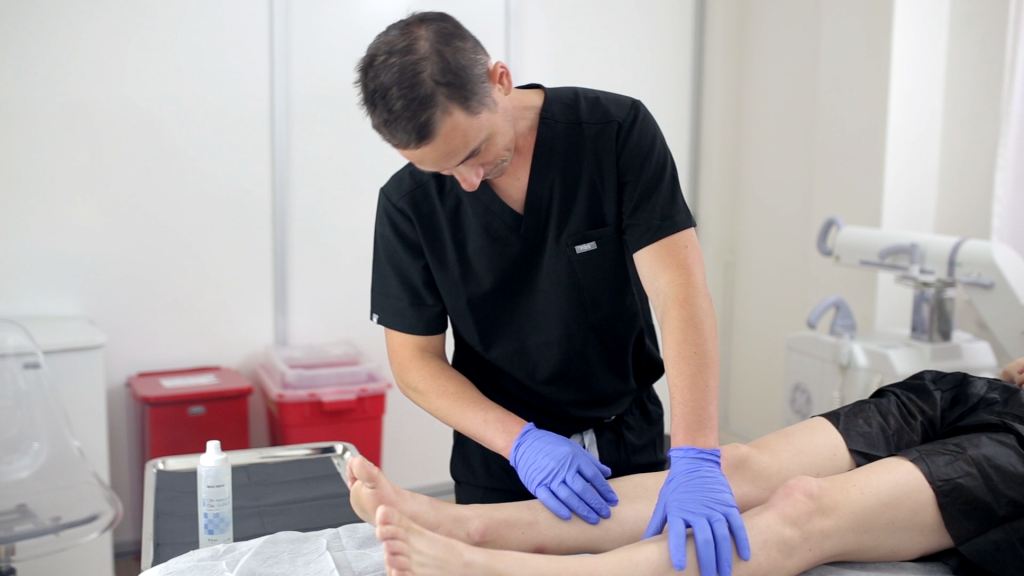
When it comes to addressing varicose veins, you might wonder, “What is a vein doctor called?” This is a valid question, as varicose veins are a common vascular issue that many people face. Understanding the medical professionals who specialize in treating varicose veins and the treatment options available is essential for those seeking relief from this condition. In this comprehensive guide, we will delve into the world of vein doctors and explore the various treatment options for varicose veins.
A vein doctor is a medical specialist who focuses on diagnosing and treating various vascular conditions, including varicose veins. These medical professionals are formally known as Phlebologists. Phlebology is the branch of medicine dedicated to the study and treatment of venous disorders.
Phlebologists are experts in evaluating and managing vein-related issues, making them the go-to healthcare providers for individuals suffering from varicose veins. They possess the knowledge and experience to determine the underlying causes of vein conditions and recommend the most suitable treatment options.
Now that we understand the role of a vein doctor, let’s explore the various treatment options available for varicose veins. The choice of treatment depends on the severity of the condition and the patient’s specific needs. Some of the most common treatment options include:
Sclerotherapy is a minimally invasive procedure that involves injecting a special solution into the affected veins. This solution causes the vein to collapse and gradually fade away. It is an effective treatment for small to medium-sized varicose veins and spider veins.
EVLA is a modern and highly effective procedure for treating varicose veins. It involves using laser energy to close off the damaged vein. The body then naturally reroutes blood flow through healthier veins.
RFA is another minimally invasive technique used to treat varicose veins. It utilizes radiofrequency energy to heat and close the affected vein. As with EVLA, blood flow is redirected through healthier veins.
Phlebectomy is a surgical procedure that involves the removal of the affected veins through small incisions. It is typically used for larger varicose veins that do not respond well to other minimally invasive treatments.
Venaseal Closure is a relatively new treatment option that involves the use of a medical adhesive to close off the affected vein. This procedure is virtually painless and offers rapid recovery.
Ambulatory phlebectomy is a minimally invasive surgical procedure used to remove superficial varicose veins through tiny incisions. This method is highly effective and minimizes scarring.
Laser therapy can be used to treat smaller varicose veins and spider veins. It uses laser energy to heat and close the veins, which are eventually absorbed by the body.
In cases where traditional sclerotherapy is not suitable, foam sclerotherapy may be employed. This method involves creating a foam solution that is injected into the veins to collapse and close them.
It’s important to note that the choice of treatment depends on the patient’s individual condition, medical history, and the vein doctor’s assessment. Often, a combination of treatments may be recommended to achieve the best results.
If you are experiencing symptoms of varicose veins, it’s essential to seek medical attention from a vein doctor. Common symptoms include:
Additionally, if you have a family history of varicose veins or have other risk factors, it’s advisable to consult with a vein doctor for a thorough evaluation. Early intervention can help prevent the condition from worsening and improve your overall quality of life.
What are the Treatment Options for Varicose Veins, a vein doctor, formally known as a Phlebologist, is a medical specialist who diagnoses and treats various venous conditions, including varicose veins. These professionals play a crucial role in helping patients manage their vein health and select the most appropriate treatment options.
The treatment options for varicose veins range from conservative management techniques like compression stockings and lifestyle modifications to minimally invasive procedures such as sclerotherapy, endovenous laser ablation, and radiofrequency ablation. Surgical options like phlebectomy and ambulatory phlebectomy are reserved for more severe cases. Each treatment has its advantages and is chosen based on the patient’s specific needs.
If you are experiencing symptoms of varicose veins or have risk factors, it is advisable to consult with a vein doctor for a comprehensive evaluation. Timely intervention can lead to improved vein health and a better quality of life. Remember that seeking expert medical advice is the first step towards finding relief from varicose veins and enhancing your overall well-being.